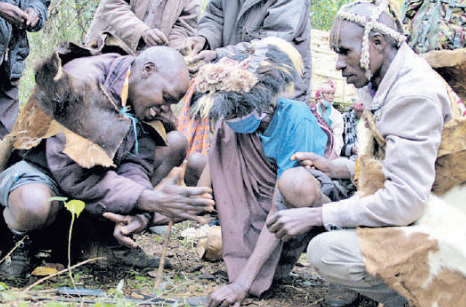
Civil society groups have requested an advisory opinion on the human rights obligations of African states, in the context of climate change, from the African Court on Human and People’s Rights in Tanzania.
In a landmark move for environmental justice and human rights, four organisations submitted a petition on May 2 to the court in Arusha. Court opinions and rulings are not legally binding but carry considerable moral weight.
They include the African Climate Platform, Resilient40, Natural Justice, and Environmental Lawyers Collective for Africa in collaboration with the Pan African Lawyers Union (PALU).
The unprecedented request is the first time African civil society is utilising the court’s advisory mandate to address the climate crisis. The development is described by legal experts and climate activists as a transformational moment for African jurisprudence on climate justice and intergenerational equity.
“Africa, which contributes only a small fraction of global greenhouse gas emissions, is facing overwhelming challenges due to the climate crisis,” Alfred Brownell, lead campaigner of the African Climate Platform, said in a statement.
“The alarming rise in the frequency and severity of droughts and flooding, along with escalating temperatures, poses grave threats to both natural ecosystems and the livelihoods of countless individuals,” he said.
Brownell called the petition an urgent and “heartfelt plea for justice” for the communities enduring these harsh realities.
“Our mission is to put in place strong protective measures against environmental harm, ensuring that the dignity and resilience of the millions of Africans confronting these challenges are upheld,” he said.
“We are deeply committed to ensuring their fundamental rights are acknowledged and their voices resonate in discussions regarding the governments’ responsibilities toward past, present, and future generations."
“By advocating these crucial principles, we seek to strengthen intergenerational responsibilities and promote a new legal framework that emphasises multigenerational obligations and duties for states. Africa’s poor must not pay for the lifestyle of the historical emitters.”
Grounded in the African Charter on Human and Peoples’ Rights, the petition seeks the court’s interpretation of states’ obligations under key regional legal instruments.
They include the Maputo Protocol, the Kampala Convention, and the African Charter on the Rights and Welfare of the Child.
The petition addresses critical legal and human rights issues, presenting an opportunity to affirm a unified continental vision rooted in core principles.
The principles include states’ duty to safeguard the rights to life, health, housing, food, water, and a healthy environment, as well as ensure legal standards for climate adaptation, resilience and addressing loss and damage.
Other principles are obligations to protect vulnerable groups, including indigenous peoples, women, youth, and climate defenders; accountability of multinational corporations and historical polluters; promotion of a just transition and equitable energy systems; decolonisation of natural resource governance and zero tolerance for reprisals, and a commitment to dignity.
In the lead-up to the submission, legal professionals, climate justice advocates, environmental defenders, and human rights activists from across the continent have been gathered in Arusha since April 27 to finalise the petition.
The initiative is being hailed as a milestone in Africa’s evolving legal response to climate injustice, calling on the continent’s highest human rights court to play a defining role in shaping climate-resilient governance and law.
More than a legal forum, the Arusha gathering is an expression of solidarity from activists and front-line defenders across Africa’s five regions.
Cynthia Okelo, economic governance officer at PALU, said Africa is not a shock absorber for polluters.
“Through this petition, PALU stands with the people of Africa to demand clarity, accountability, and justice under African and international law,” she said.
“The time has come for our courts to affirm that environmental harm is not just a scientific concern — it is a human rights emergency.”
Egyptian human rights defender Ahmad Abdallah said, the drying dams of Morocco, the thirst protests in Algeria, and the disaster of Derna in Libya, are among stark reminders that climate change is not a future threat. It is an unfolding human rights due to water scarcity, displacement, and economic instability.
Agnes Kabujuni, African managing director at Minority Rights Group, said indigenous peoples and marginalised communities have contributed the least to global greenhouse gas emissions, yet they bear the brunt of climate change impacts.
“Their livelihoods and very existence are closely tied to the health of nature,” she said.
“Recognising their critical role in nature stewardship and their traditional knowledge is essential for effective and inclusive climate action.”








![[PHOTOS] Elgeyo Marakwet landslide victims arrive in Eldoret for care](/_next/image?url=https%3A%2F%2Fcdn.radioafrica.digital%2Fimage%2F2025%2F11%2F425460d9-7ff1-4975-8a1f-cd0aaefb7812.jpg&w=3840&q=100)


![[PHOTOS] 30 missing as rescue continues in Elgeyo Marakwet mudslide](/_next/image?url=https%3A%2F%2Fcdn.radioafrica.digital%2Fimage%2F2025%2F11%2F75a26195-578e-4133-b047-a2dce6b05d69.jpg&w=3840&q=100)
